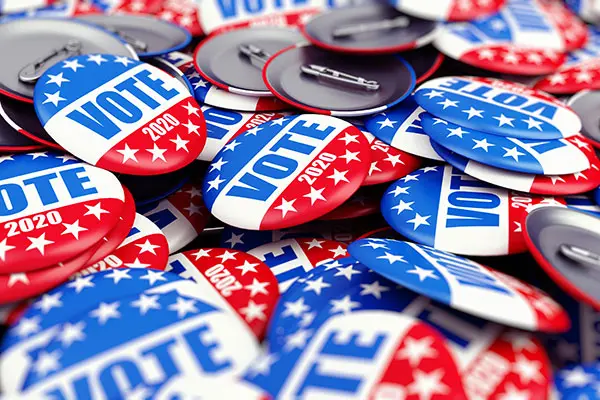UMass Lowell Political Scientists Available for Interviews

09/14/2021
Contact for media: Nancy Cicco, 978-934-4944 or Nancy_Cicco@uml.edu
Today’s recall election that seeks to oust California Gov. Gavin Newsom and the preliminary election in the Boston mayoral race each signal sharp changes in political engagement, according to UMass Lowell politics experts available for interviews about these races.
In California, the process behind the race to replace Democrat Newsom is damaging to a healthy democracy, according to Joshua Dyck, director of the university’s Center for Public Opinion. Under the recall system, should a majority of voters want to remove Newsom from office, the candidate – in this instance, among the 46 running – with the highest vote total will become governor, even if that candidate does not garner a majority of votes.
“American democracy requires some down time. If we live in a perpetual state of campaigning, then the rhetoric that accompanies elections can be become a permanent fixture of our politics, and this is not desirable or healthy. While direct democracy advocates from 100 years ago created the recall provision to remove corrupt politicians, what has happened instead is that the process is rarely used in a bipartisan manner and makes our system of frequent elections too frequent,” Dyck said. “The recall of Gavin Newsom, which will most likely fail today, only serves to deepen the gap and further polarize the California electorate, while costing state and local governments just shy of $300 million to administer the election. Advocates instituted the recall as a salve to corruption, but the institution signifies poor democratic health more than it does corrupt politicians.”
Closer to home, quite a different dynamic is unfolding in the preliminary election to select Boston’s next mayor, according to John Cluverius, the Center for Public Opinion’s associate director.
Five candidates – Acting Mayor Kim Janey; John Barros, Boston's former economic development chief; and city councilors Andrea Campbell, Annissa Essaibi George and Michelle Wu are in the race, which will narrow the field to two finalists that will square off in the general election in November. As opposed to a primary, any Bostonian may vote in the preliminary election regardless of their party enrollment.
All of the candidates are Democrats and all are people of color, signaling a sea change after Boston’s history of white, male mayors for the past 200 years.
“One thing is almost certain: There will not be a white man on the ballot in the general election for the mayor of Boston. That’s a historic first in a majority-minority city with a power structure that’s been slower to change than most others of its size and diversity,” said Cluverius, who predicts voters will select Wu and Janey to move on to the general election on Nov. 2.
“If Wu wins with more than 30 percent of the vote, she’s the heavy favorite to be the next mayor. You see political elites from other places gathering around her as well, and there’s an entire generation of women in government across the country that are all aboard the Wu Train, including state legislators from other states. When you see elected officials move like this, there’s the sense that they think Wu will be the next mayor and successfully seek higher office after that. And, while the race for second place seems very fluid based on public polling, I’m watching for a late surge from Mayor Kim Janey, whose organization is formidable. She has a real chance to capitalize on her higher name recognition and the advantage of having been mayor, even for a shorter amount of time,” Cluverius said.
Cluverius and Dyck are faculty members in the university’s Political Science Department. Dyck is an authority on public opinion research, political campaigns, voter behavior and government. Cluverius is an expert in research methods and state and local politics.
To arrange an interview with either of them via phone, email or Zoom (or another platform), contact Nancy Cicco at Nancy_Cicco@uml.edu, 978-934-4944.
